On September 16th, 1974 a young journalist published his first book. It quickly became a modern classic, earning him the Pulitzer Prize among other accolades. The Power Broker remains one of the best books ever written about New York. As we celebrate its fiftieth anniversary, I thought it appropriate to share one of Noted’s earliest posts—on the notes Robert Caro took while writing his magisterial histories.
If you want to publish award-winning history books that total well over 1,000 pages each, you’ve got to have an organizational system. Unsurprisingly, Robert Caro’s got one. We, mere mortals, can glimpse it by reading his most recent book, Working. Or, by visiting the New York Historical Society, which has an ongoing exhibit on Caro’s methods.
Even though his readers usually have to wait at least 10 years between books, Caro jokes that he’s actually a very fast writer. It’s the research that takes forever. And the research takes so long because Caro has a deep appreciation for truth in all its complexity. “The more of those facts you get…the closer you’re coming to whatever truth there is.”1 And we have to start from there, because, if not, the foundation of democracy crumbles. Caro explains,
I don’t think there’s anything more serious for a democracy than what’s happening right now, where, for many reasons, we’re losing belief in facts and truth.2
Reading gives us access to one kind of information. The body has a different sort of truth. While researching Lyndon Johnson (we are waiting for the 5th installment of this biography), Caro and his wife, Ina, moved to rural Texas Hill Country. Living there for three years gave the Caros an intimate sense of how the future president grew up.
Caro recounts how a Hill-Country woman challenged him:
You’re a city boy. You don’t know how heavy a bucket of water is, do you?3
Once Caro lifted a full bucket from the well, he understood just how difficult life was in early 20th-century Hill Country.
There are many other stories like this that show Caro’s dedication to his projects. And through it all, he took copious notes. Here are some highlights from different stages of his writing process.
Interviewing
Caro didn’t set out to be a biographer. He was interested in power — what it is, how people get it, and what they do with it. Given this interest, Caro was also concerned with his interviewees’ motives. So he warns himself:
Be very careful. This guy just wants you to say something that he can quote all over town.
Caro’s note-pads are filled with reminders to himself. For example, to make sure interviewees have silences to fill, Caro has scribbled “SU” throughout his notes — a reminder to shut up.
All of these notes end up in carefully labelled files:
Outlining
Caro outlines his books before he starts writing. Then he pins the outline on his cork board. Once he has finished working on a page, he draws a line through the center.
Adding Evidence
Caro creates a second outline that includes all the evidence he has gathered from his extensive research and interviews.
Notes to Self, Scattered around the Office
Caro writes the best notes to himself! Check out Caro’s lamp with a note attached: “Is there desperation on the page?”
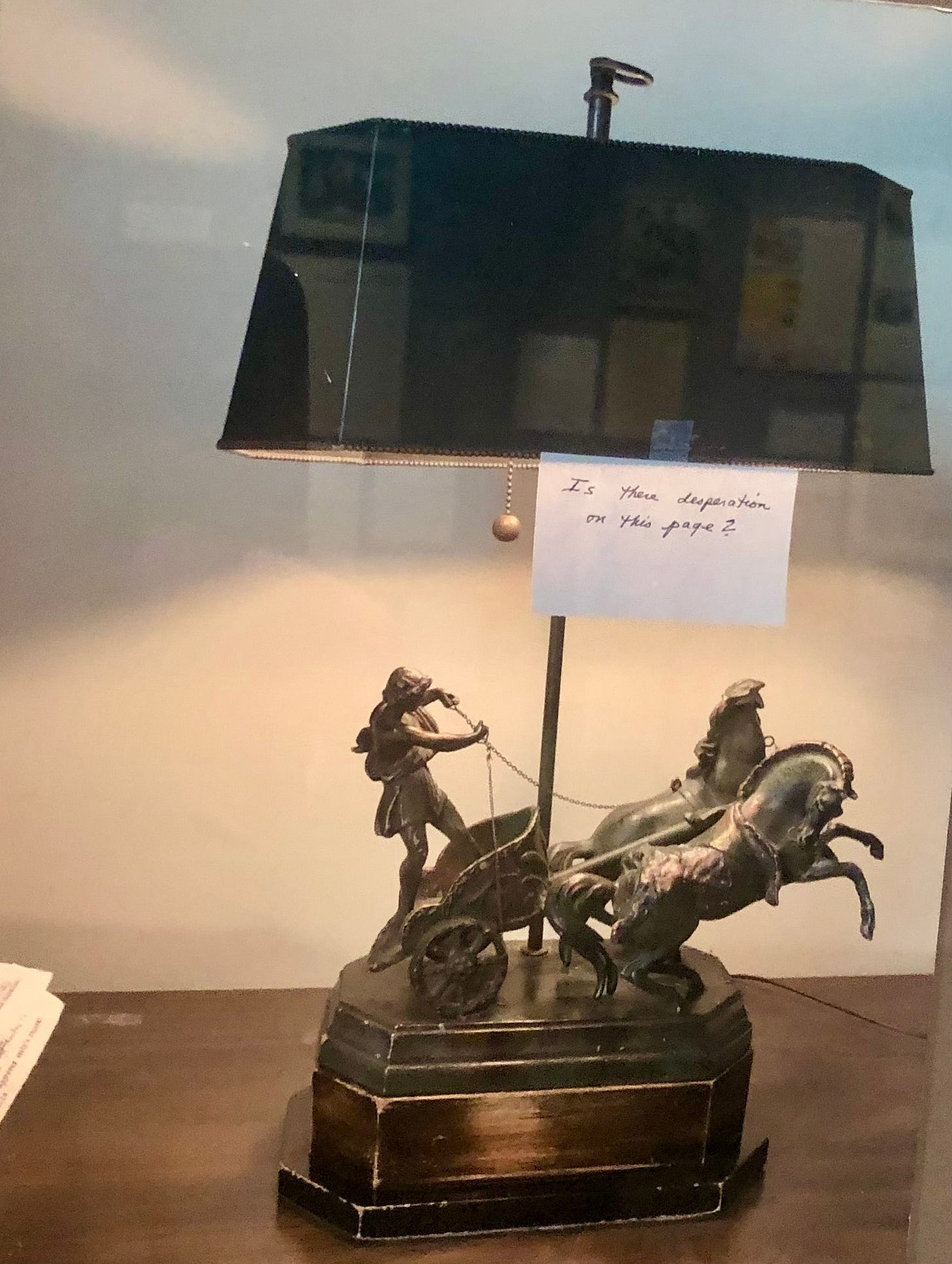
Other notes include reminders of what to cut from the draft, what to put into the draft, and how the reader ought to feel when reading a particular section.
Don’t put in any more on RK in the 1st section. Don’t ruin that wonderful rhythm.
DON’T RUIN IT!
And, my personal favorite:
The only thing that matters is what IS on this page
To-do lists
Once Caro has an entire draft, he creates lengthy to-do lists for himself.
I especially love the following items on the to-do list:
7 “Do you have any idea how many paragraphs you start with ‘and’?”
11 POWER REVEALS — it’s not in anywhere!
Of course, #11 is the subtext of Caro’s work — power doesn’t shape a person; it reveals the person. And then there’s #14, a great example of how Caro talks to himself
14 CASON! - you MUST have her. How can you not?
I assume the “Cason” Caro refers to is Betty Cason Hickman who was in the room (taking notes) when Kennedy talked with Johnson about the vice presidency.
Tracking Word Count
Caro aims for 1,000 words a day. Sometimes he exceeds his goal. Sometimes he falls short. For every day that he writes zero words, he gives a reason such as his son (Chase); travel (Italy); or just plain fatigue (lazy). Even with his ambitious working schedule, Caro reserves Sunday for rest.
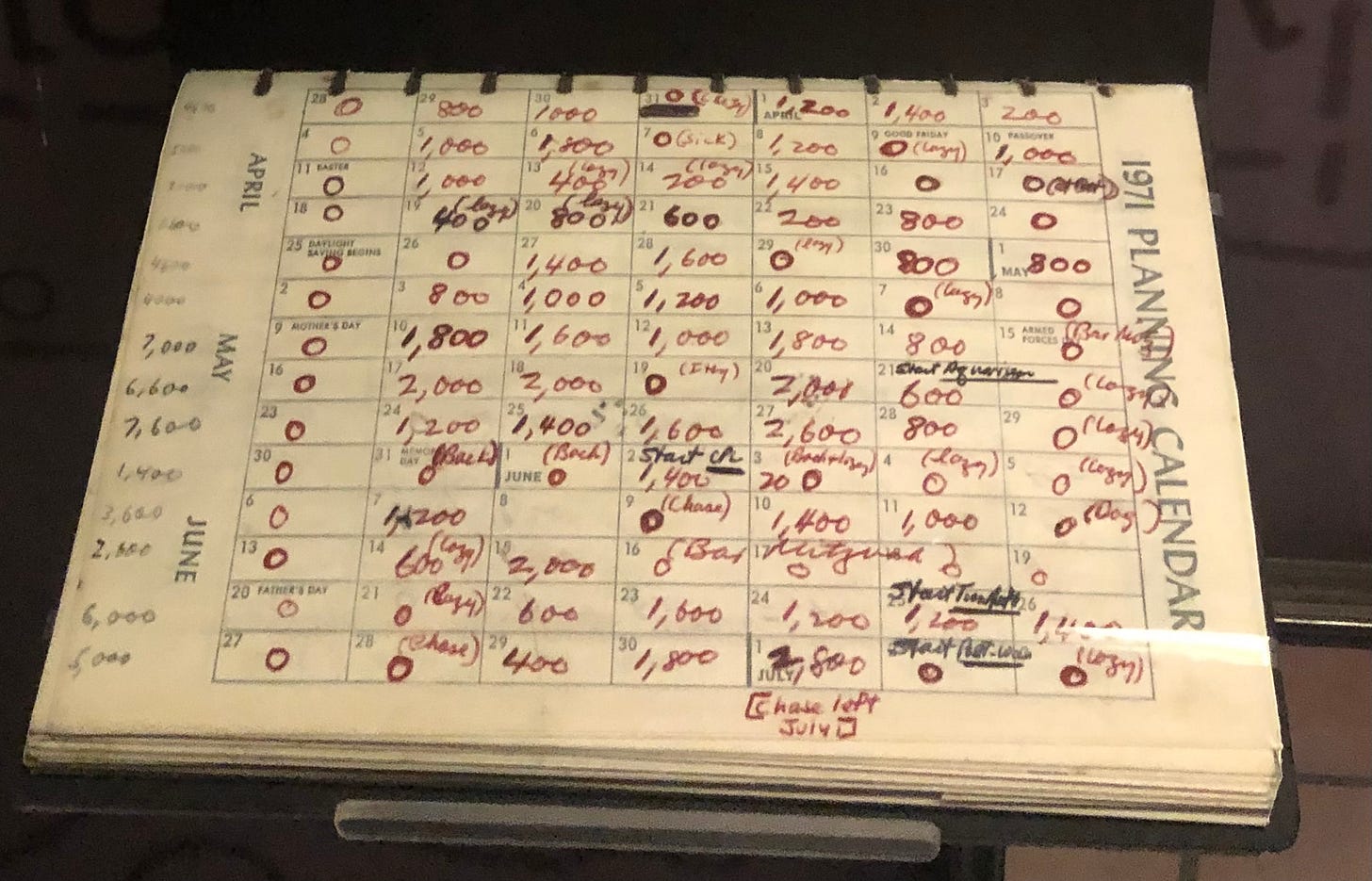
Writing is hard work. And it’s comforting to know that even Caro had days when he felt “lazy.” There was a time when I used to religiously document my word counts. Perhaps it’s time to get back to it.
A note on Ina
I loved the exhibit, but as a researcher, I’m left wanting more. It drives me crazy when I see a notebook behind glass and can’t turn the pages. In particular, I want to know more about Ina, Caro’s wife, and the notes she took. The two worked together on all of his books.
While Robert Caro gives ample credit to Ina in Working, she is mostly absent from this exhibit, with a few exceptions. While doing research for The Power Broker, the two of them went to Jones Beach to tally visitors by race. It seems Robert Moses was, indeed, successful in keeping people of color away from this particular park.

I contacted the archives at the New York Historical Society to ask about Ina and learned that some of her notes are probably in the exhibit, but that it’s difficult to tell who was writing what.
Notes on Caro’s Notes
Batch your work into discrete stages: Caro works on gathering research before he begins writing. I find this practice particularly difficult; I’m always itching to write before I’ve done enough research. But, I’ve noticed that writing feels much easier when I’ve done the bulk of my research first.
Write notes to yourself: Writers are in constant conversation with themselves. Making that conversation visible once in a while might prove useful.
Track your writing, but give yourself a day for rest: Like Caro, I used to track my daily writing word count. These days, I track time spent writing. Tracking our work can be useful—especially on those days when it feels like we’ve done nothing. However, if we’re going to work hard, it’s essential that we build in time for rest—at least one day a week, like Caro.
Noted is fueled by you. Your ❤️’s and comments inspire me. As always, I’d love to know your thoughts!
Till soon,
Caro, 2019 PBS Newshour Interview.
Caro, 2019 PBS Newshour Interview.
Caro, Robert A. Working. Knopf Doubleday Publishing Group, 2019.






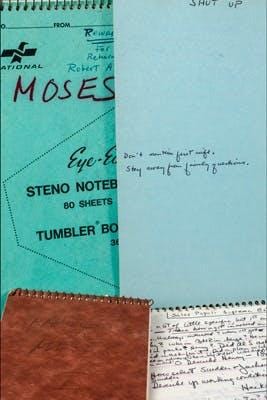
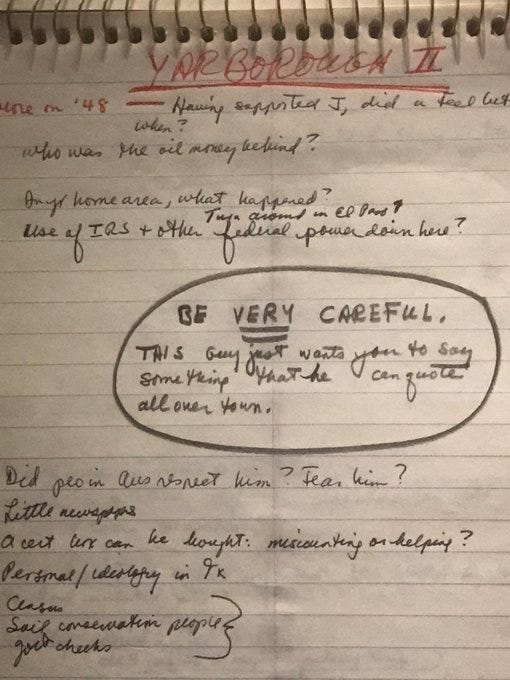

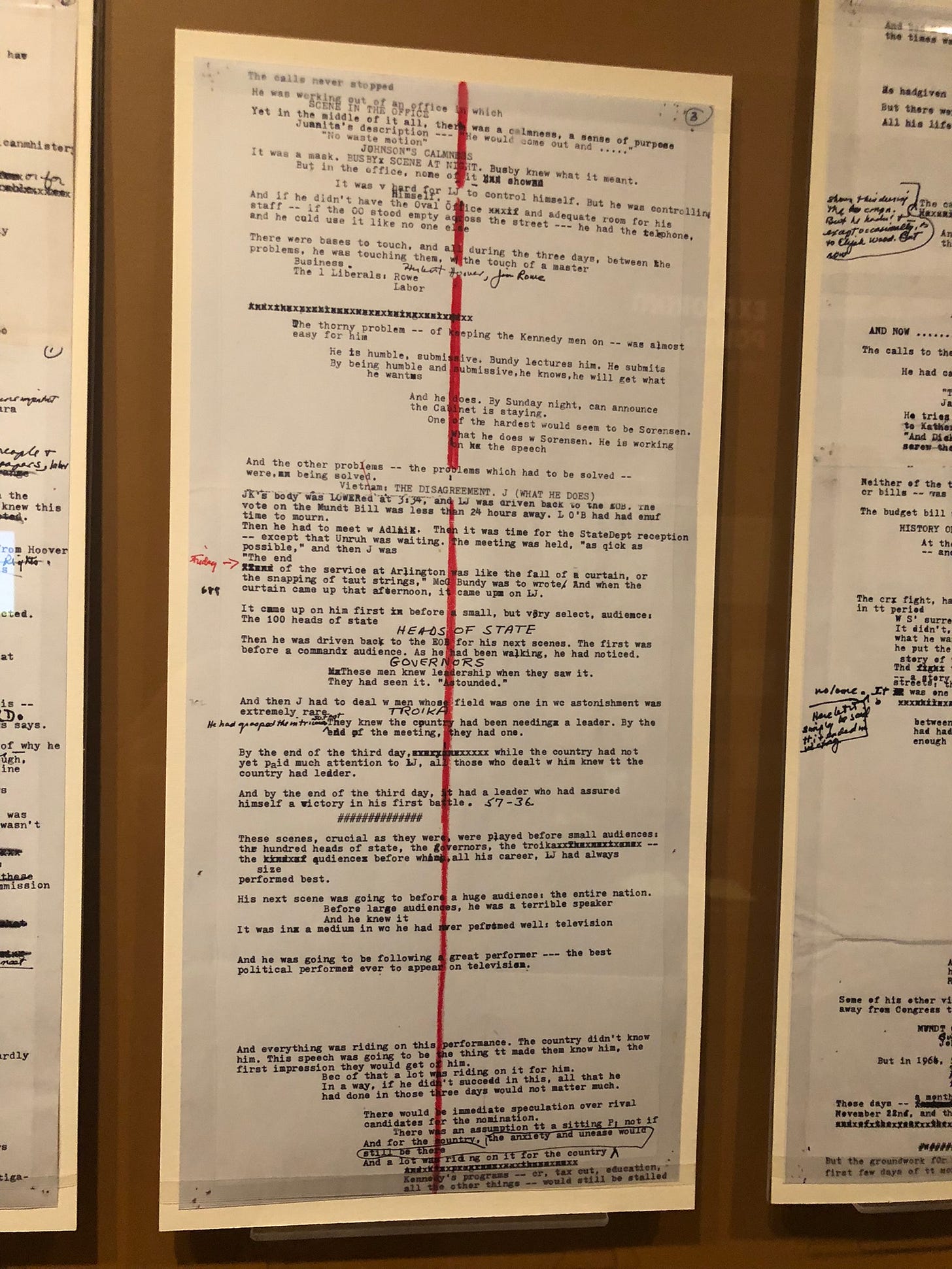

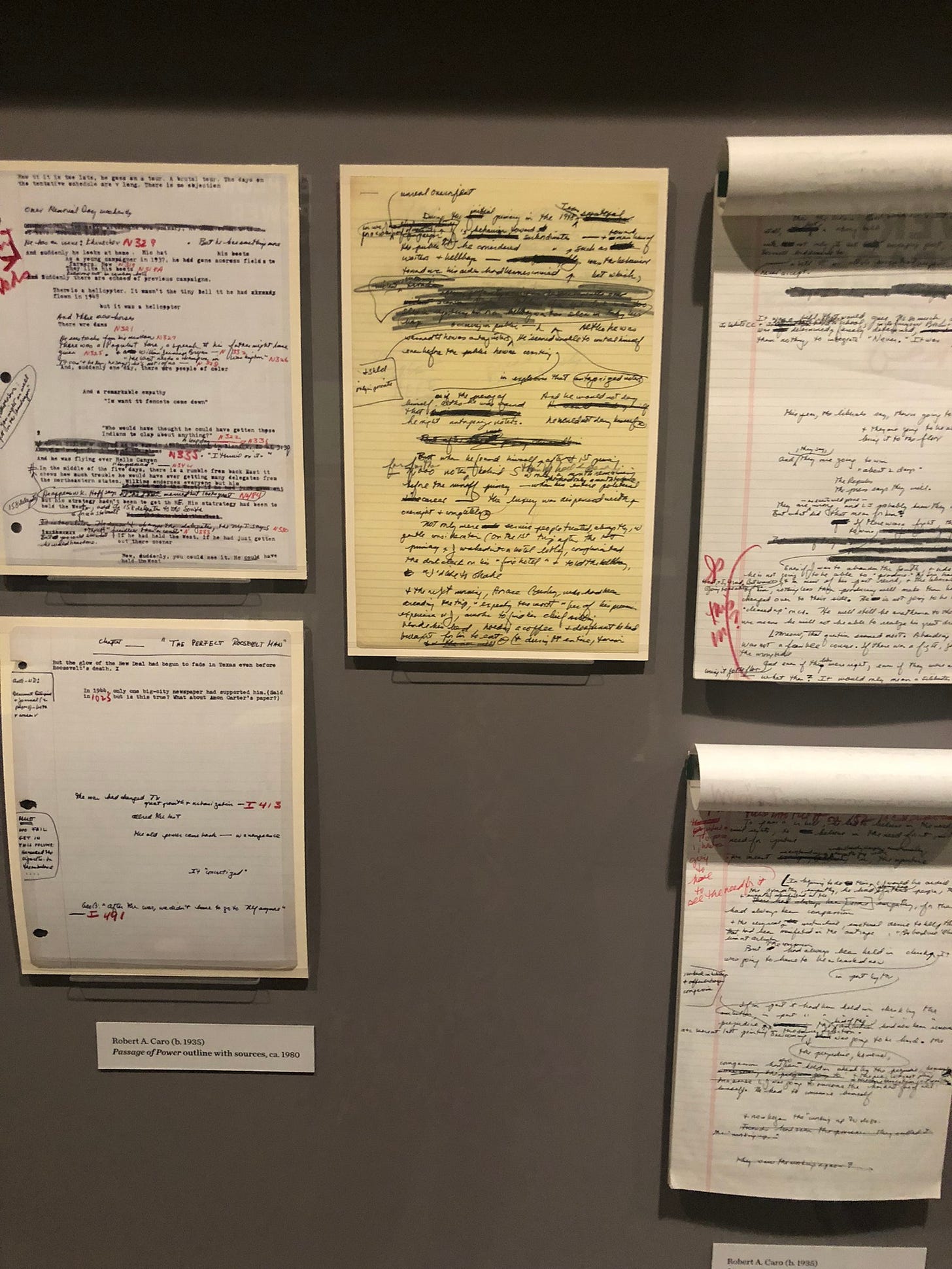
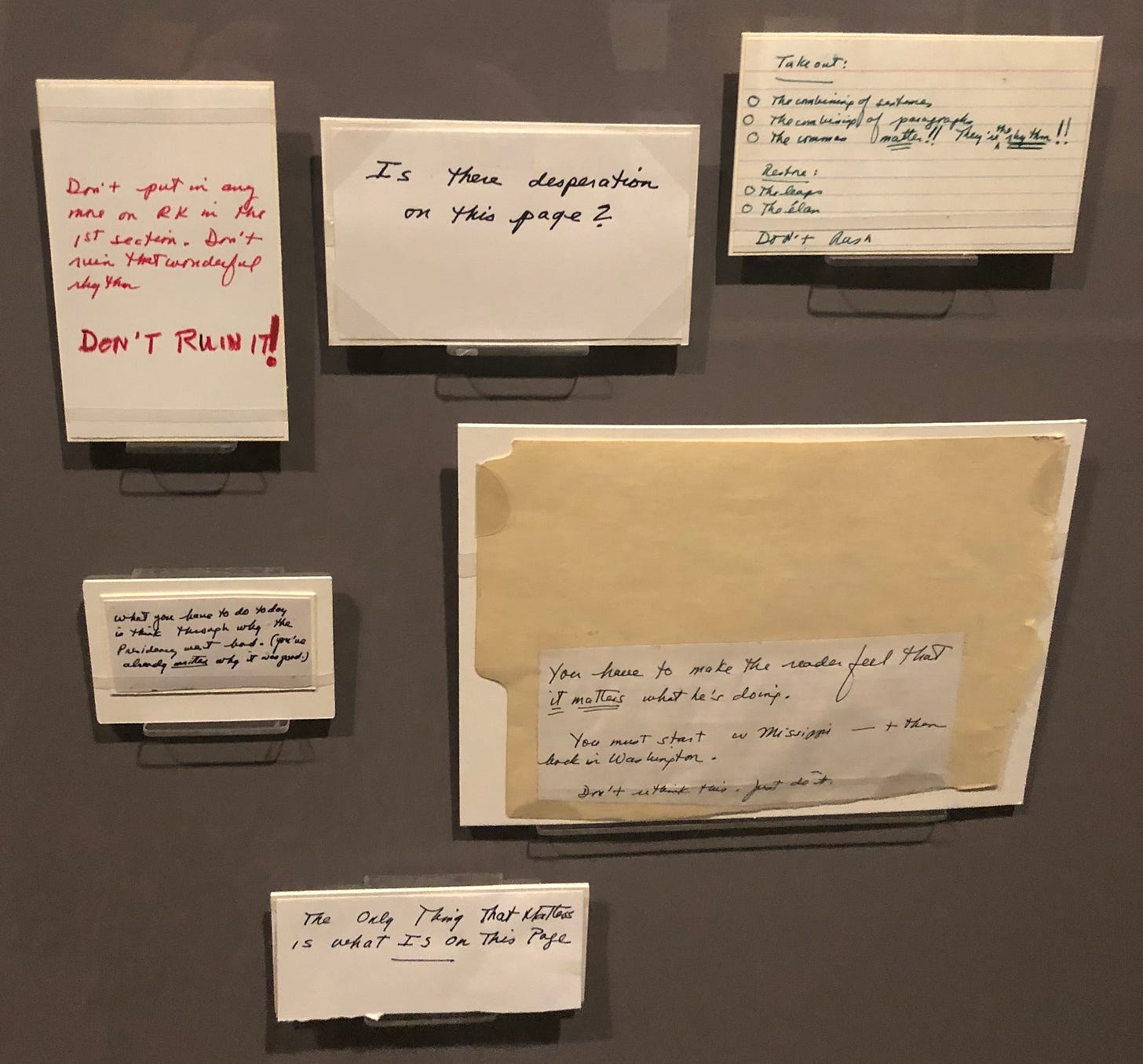
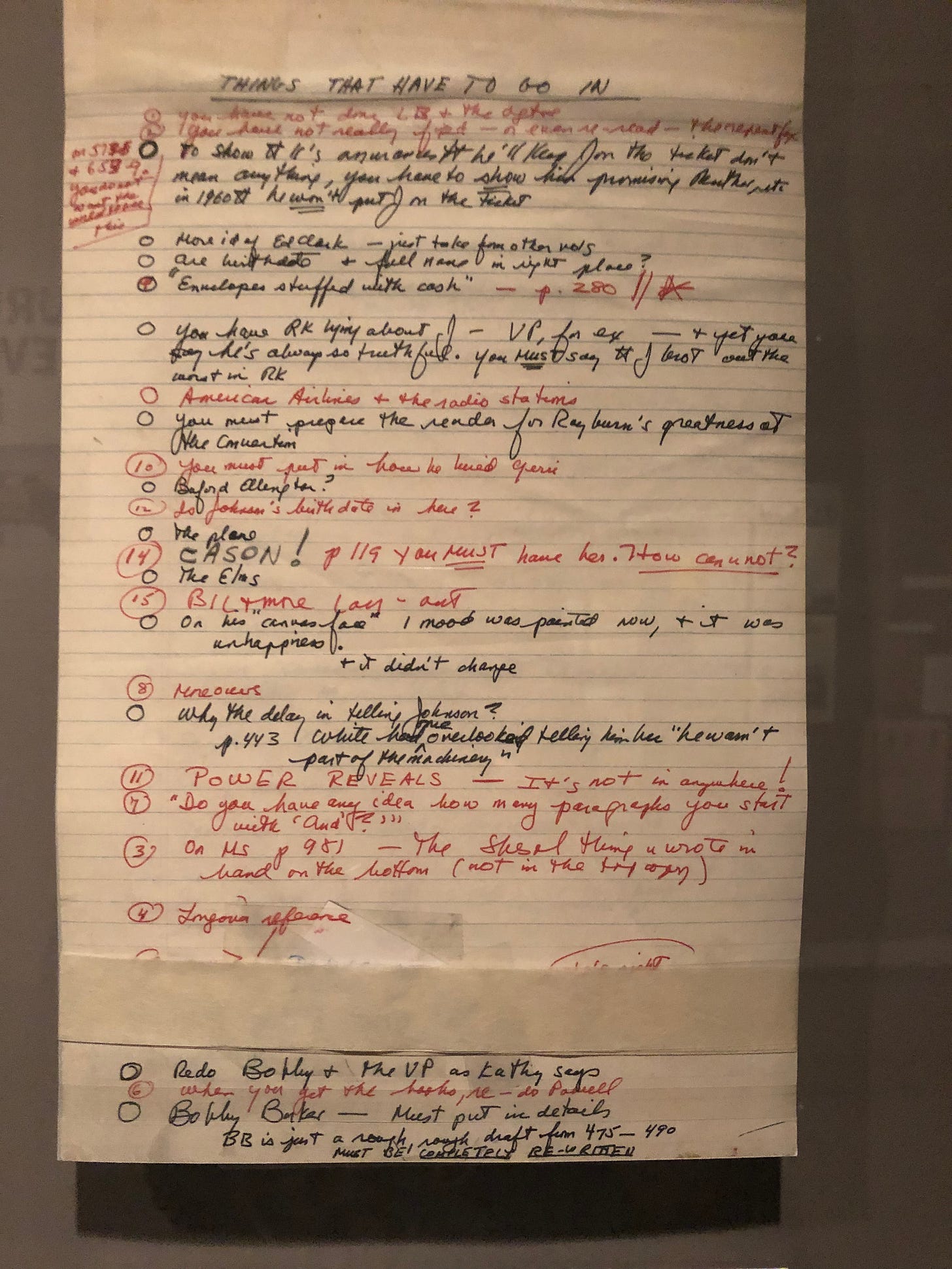

So good, Jillian! Thank you so much for this over-the-shoulder, through-the-museum, out-through-the-filing-cabinet look at Mr Caro's work. I'd never heard of him until now (I am Dutch/European - it's insane the number of people you can "never have heard of" when you don't live in the States, but only love it from a distance). I shall use all of this for my own (only partially) disorganised way of working. Un énorme merci!
This one is such a treat. I love to see how the work becomes a total, immersive, lived experience for him. A conversation with himself... pouring into physical space.